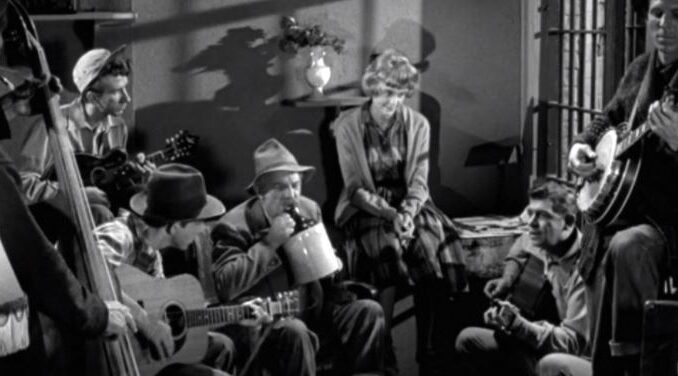
The scent of honeysuckle and the distant hum of a fishing line settling into still water – these are the sensory memories many associate with The Andy Griffith Show. We remember the wise, folksy counsel of Sheriff Andy Taylor, the bumbling charm of Barney Fife, and the comforting predictability of Mayberry. But to truly remember Andy Griffith, the man and the myth, we must occasionally veer off the well-trodden path of Opie’s innocence and Aunt Bee’s pickles. Sometimes, the clearest view of a legacy comes through a single, surprising note, a discordant harmony that nonetheless sings true. For me, that note is found in the frenetic, joyful pluck and strum of "Doug's Tune."
"Doug's Tune," a vibrant bluegrass instrumental, wasn't the show's iconic whistled theme song. It was the signature piece of The Darlings, a delightfully eccentric mountain family who periodically descended upon Mayberry, bringing with them a whirlwind of banjos, fiddles, and a charmingly uncivilized zeal for music. The Darlings, portrayed by the real-life Dillards, were a hilarious disruption to Mayberry's placid rhythm, yet they were always embraced, always welcomed onto Andy's porch. And "Doug's Tune," with its breakneck pace and intricate interplay, became the sonic emblem of their delightful chaos.
To remember Andy Griffith through "Doug's Tune" is to peel back the layers of the polished television persona and glimpse the authentic soul beneath. Andy Griffith, a North Carolina native, grew up steeped in the very folk and bluegrass traditions that The Darlings embodied. His love for this music wasn't an act; it was innate. When Andy Taylor picked up his guitar to play along with the Darlings, there was no acting required. His fingers moved with genuine familiarity, his smile was unfeigned, reflecting a deep respect and affection for the raw, unvarnished beauty of their sound. "Doug's Tune," in particular, is a masterclass in controlled pandemonium, a cascade of notes that seems on the verge of delightful collapse yet always resolves into a foot-stomping, head-bobbing triumph. It’s the sound of joy unfettered, of skill honed in the hollows and on the front porches, far from any recording studio.
This tune also illustrates Andy Griffith’s profound understanding of community and acceptance. Mayberry, at its heart, was a place where differences were not just tolerated but integrated. The Darlings, with their wild hair, their unusual names (Briscoe, Charlene, Ernest T. Bass if you count him as an outlier), and their untamed bluegrass, were a radical departure from the town's neat picket fences and polite conversation. Yet, Sheriff Taylor, ever the patient sage, never once judged them. He saw the genuine artistry in their music, the honest emotion in their performance. "Doug's Tune" became a bridge between two worlds: the orderly, predictable Mayberry and the untamed spirit of the mountains. It showed that harmony could be found not just in matching tones, but in the acceptance of disparate voices creating something vibrant and new together. Andy Griffith, through his character, taught us that true community embraces even the loudest, wildest parts, finding the melody in every unique voice.
Moreover, "Doug's Tune" is a visceral reminder of a simpler time, not just within the narrative of the show, but in the broader cultural landscape. It’s a snapshot of an era when television could present authentic, unadulterated musical talent without needing to sanitize or overproduce it. There's an honesty in its sound, a lack of pretension that mirrors the values Andy Griffith consistently championed: integrity, humility, and the quiet dignity of everyday life. The tune, with its intricate banjo rolls and fiddle runs, reminds us that profound skill doesn't always need a spotlight; sometimes, it's best appreciated on a dusty porch, under the warmth of a setting sun.
When I hear "Doug's Tune," it's not just a song; it's a doorway. It leads not only back to Mayberry but to a deeper appreciation of Andy Griffith himself. It evokes his authentic musical soul, his gentle wisdom, and his unwavering belief in the power of community to embrace even the most unconventional expressions of joy. It’s a loud, fast, exuberant echo of a man who taught us so much about peace and quiet, proving that true memory, like true music, often reveals its most profound truths in the most unexpected bursts of sound.